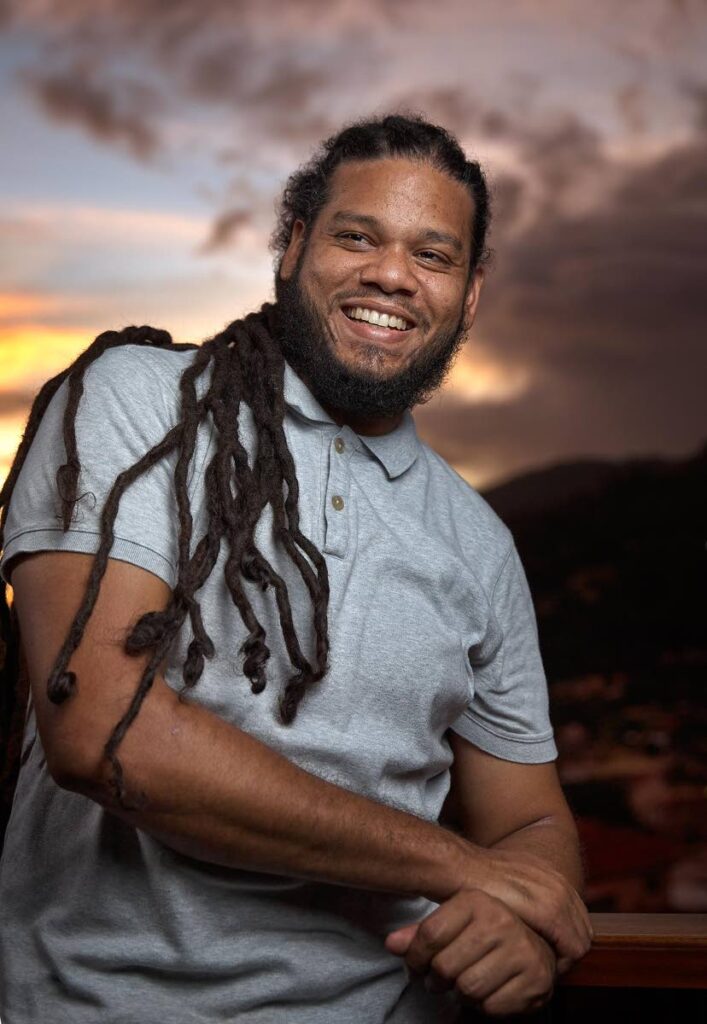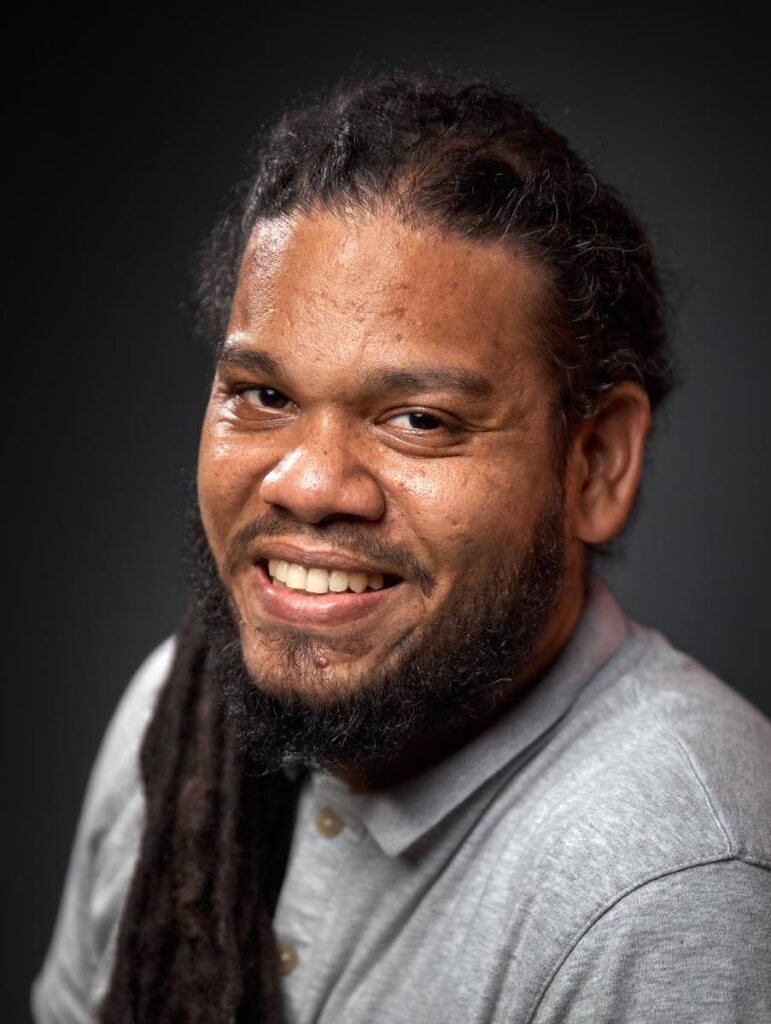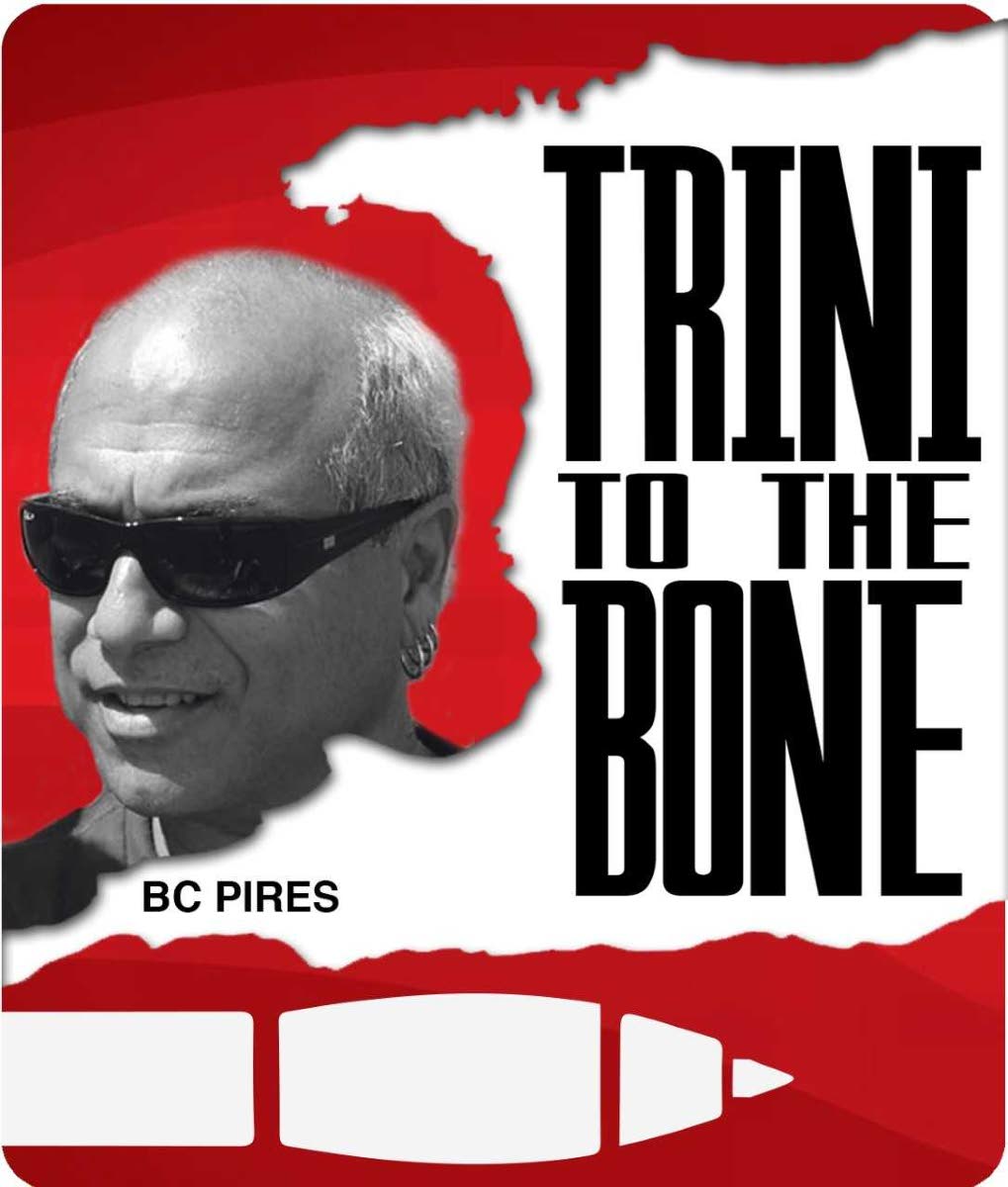The art of making food

AS TOLD TO BC PIRES
My name is Devon Joseph, and I am an artist working in the medium of food.
I come from east Trinidad, the village of Valencia.
I moved to Woodbrook in Port of Spain ten years ago. I’ve been living in Cascade about five years now. St Ann’s/Cascade reminds me of country life in Valencia. So I don’t really miss that peaceful country vibe.
My father, Phillip Joseph, and my mother, Susan Joseph, had two sons, me and my brother Kendall, and my two sisters Rianna and Kerryn. I am in the middle. My brother is the baby. My wife Robyn and I don’t have any children yet. She was a Ramkissoon. I met my “better half” in hotel school, the TT Hospitality and Tourism Institute. We’ve been married five or six years.
Robyn deals with the people. We’re in the hospitality industry together. But she is absolutely the mastermind of our business. She’s a superstar. I am merely the artist.
My boyhood was a little different from the typical Valencia boy’s story because my father and mother were very protective. A lot of the boys living on my street could go to the river anytime they want. Their parents weren’t scared of anything. They went fishing, bird-hunting, rough bush life. My brother and I never had that freedom to do as we please with our cousins. I still experienced real quality countryside life and that gave birth in some kind of way to my career because we did a lot of cooking by the roadside or riverside. A lot of open flames. We gather cashew nuts and roast them.
My first school was the Arima New Government School. I went to ANG straight up to standard five, and passed Common Entrance for Sangre Grande Junior Secondary School. We used to call it Sec.
I was raised Pentecostal, and I’m absolutely still a believer. I grew up in church. My second passion – and, for a time in my life, I wondered which I loved more – was singing in the choir. I love music. When I entered the culinary realm 20 years ago, I no longer had the time to attend church and to be involved in all the different ministries. The truth is, my career really did consume me from school straight up to now.
I made the national culinary team going to the Taste of the Caribbean competition in 2011 and lost the Caribbean Chef of the Year to a Bajan chef by three points. Of course, I couldn’t live with that!
So I made the team again in 2012 and won. I remain the only Trinidadian to have won Caribbean Chef of the Year in all the decades TT has been entering. In 2013, they invited me to judge the competition.
It took winning the Caribbean Chef of the Year to prove to myself that, not because I’m not academically inclined, it doesn’t mean I’m not great with my hands.
School just wasn’t something I liked! My favourite subject was recess. My first shot at CXC was real failure. The only reason I have no problem in making it known that I wasn’t the best schoolboy is just in case someone who is great with their hands but not good at school, it could possibly be inspiring to them.

Sometimes we have difficult days. But with one eight-hour rest, I’m up and ready to go again the next day.
My first experience of working with a professional chef was with Joe Brown at Solimar restaurant. Working with Joe Brown in the transition from Solimar to Jaffa, I met Khalid Mohammed and Akins Glasgow, his sous-chef. He was quite influential in my career, too. Khalid had already left Battimamzelle.
Actually, I had met Khalid when he came to TTHTI. Khalid told me he was going to open Chaud around the Savannah and I was welcome to come on board. I was part of the inception team at Chaud. Khalid and I are still very close up to today. It’s not very frequent, but we still have a cigar now and again.
I follow sports if I get chain-up, as we say in Trinidad, to look at a good game. I choose who I’m backing and I become part – but it would not be true to say I really “follow” sports.
I’m trying to decide whether the best part of being an artist who works in the medium of food is 1, watching people eat your food or 2, when you yourself, as producer of that piece of art that happens to be food, are truly happy with what you have done. If you are a perfectionist – and people call me that, and call me OCD as well – such a person knows in their heart when they have produced something they are not 100 per cent happy with, even though the receiver or the end-user is 100 per cent happy. I try to achieve my own happiness 100 per cent of the time. I think major satisfaction comes from your satisfaction.
The downside, especially in the earlier part of my career, is I would have missed out on 99 per cent of my own family limes, birthday parties and wedding celebrations. Now, as the owner of my company, I’m a little more flexible and it’s a little bit better. But in order for you to have a wedding on a Sunday, somebody have to be working for you on that Sunday… and that is me! Your wedding is my work.
As a caterer, it’s almost as if you’re a hustler. It is a little bit different from a sit-down restaurant in that you do a job when you get the job. So if you get the job in an out-of-timing period, as a Trini says, you don’t really have a choice, you have to take the job, because it is your bread and butter. Christmas Day, New Year’s, Boxing Day are all working days.
A Trini is a free person. To me, the words “Trini” and “free” are exactly the same!
I’ll answer what Trinidad and Tobago means to me indirectly. A lot of Trinidad’s culture is based on its food. But who told the Trini to take that bush that grows on top of a root vegetable called dasheen, pair it with coconut milk, crab or pigtail, and then blend it up? A lot of what Trinidadians do with food has nothing to do with culinary laws. Trinis do their own thing – but their own thing just happens to be amazing from a culinary perspective. It’s not they happen to be doing the right thing according to culinary arts, it’s that their thing happens to be amazing as food. And that comes from the heart! That comes from the core!
Read the full version of this feature on Friday evening at www.BCPires.com


Comments
"The art of making food"